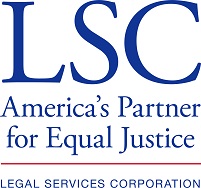Table of Contents
Rent Increase or Decrease
If your rent is legally increased and you receive a 3-day or 5-day notice to pay or vacate after failing to pay the increased amount, you must pay the increase – and all late fees imposed by a written agreement – or you risk being evicted. Once the 3- or 5-calendar day period has expired, you lose the right to cure the default (by paying). The landlord can evict you.
Can the landlord increase my rent if I never signed a written rental agreement?
Yes, as long as the landlord gives you written notice of the rent increase at least 15 calendar days before the next time the rent is due. If no written agreement was ever signed by you and the landlord then you are a month-to-month tenant. Either you or the landlord can end the tenancy by giving a written notice at least 15 days before the next time the rent is due (see our flyer about “No Cause” terminations). The same law applies to rent increases since the tenant may not be able to pay increased rent and will have to find a new place to live. It does not matter how long you have lived there or how many habitability problems (“bad conditions”) exist; the landlord can still raise the rent. If the notice is given less than 15 days in advance, it is not effective until an additional month has passed.
What if I did a lot of work on the rented premises, can the landlord still increase my rent?
The answer is almost always yes, the landlord can raise the rent. See our flyer about working on your rented home instead of paying some of the rent located at the bottom of this page. Without a written agreement between the parties, the landlord can raise the rent as long as the landlord gives written notice of the rent increase at least 15 days before the rent is next due. The landlord does not have to accept any work done by a tenant in exchange for rent.
Can the landlord raise the rent during the term of the lease?
Generally, no. But some written agreements contain clauses that allow the landlord to increase the rent during the lease term for specific reasons such as increased property taxes or maintenance fees. And sometimes a written agreement will allow for changes in monthly payments for non-rent charges such as utilities or parking fees. Read “Watch Out!” for tips about avoiding landlord traps for unwary tenants, which is also located at the bottom of this page.
If you live in a mobile home park and you own your manufactured home, the law always requires at least 60 days written notice of a lot rent increase unless your written agreement requires additional notice.
What if my lease has expired. Can the landlord raise my rent?
If neither you nor your landlord receive a government subsidy for your rented home then the landlord can give you written notice of a rent increase. If the last-signed rental agreement requires 30 or 60 days notice prior to the end of a rental period to terminate the tenancy after the lease term expires then that same length of time is required before a rent increase can be effective. If the agreement says nothing about how much notice is required to terminate the tenancy or raise the rent then only 15 days written notice is required as long as it is at least 15 days before the rent is next due. It does not matter that you have a fixed income and cannot afford the rent increase; the landlord can still raise the rent.
Note: Some written agreements say that the rent will increase automatically beginning the month after the lease term ends unless a new agreement is signed before the old one expires. A landlord has no duty to remind the tenant about the contents of the signed rental agreement. Such a tenant may unexpectedly run into increased rent and late fees. The tenant should ask the landlord to retroactively sign a new lease to eliminate the month-to-month surcharge. If refused, the safest course is to pay the increased rent and late fees.
If I have a “section 8” or Housing Choice voucher, can the landlord force me to pay more than 30% of my household income?
Generally, no. But the rules for vouchers are complex. Voucher holders pay 30% (sometimes up to 40%) of their adjusted household income for rent and utilities. Most section 8 tenants sign a 1-year lease. When that lease expires, the landlord can negotiate with the housing authority for a higher total rent amount. If that total rent amount exceeds certain federal guidelines but is still allowable, the tenant may be required to pay the difference if the tenant wishes to stay after the initial lease term. Do not pay anything to the landlord unless the payment has been approved by the housing authority. Do not make side agreements. Otherwise, you risk losing your voucher!
Note: The base rent paid by a household with a section 8 voucher is determined by the household’s income. Changes in household income must be reported to the public housing authority. Do not depend on oral notice. If your income increases, your rent will almost certainly increase. If the housing authority claims you did not report increased income, you may be hit with a large overpayment and be required to pay it off or lose your voucher. If the household’s income drops to zero, the rent paid by the household may drop to zero unless the housing authority has set a minimum monthly rent such as $25 or $50. But in emergency circumstances for short periods of time, the tenant’s share of the rent must still be zero.
If I live in Low Income Housing Tax Credit or “section 42” property, can the landlord raise the rent?
Generally, no. The landlord cannot raise the rent during a 12-month lease term. Once a year, HUD calculates the median gross income in each part of the U.S. LIHTC rent amounts are based upon this calculation. If the local average income increases, the LIHTC rent may be increased during the next 12-month lease term. Review your lease agreement as it may allow the landlord to increase the rent when the HUD calculation goes up.
Note: The rent paid by tenants in LIHTC property is not based upon household income and the rent does not vary when household income changes. The rent is set below fair market value. Some LIHTC tenants will pay 50% of household income for rent.
If I live in public housing or most types of project-based subsidized housing, can the landlord raise the rent?
Not directly. In public housing and most types of project-based subsidized housing, your rent is based upon your total household income. If your income changes, you must report the change in writing to the landlord. Do not depend on oral notice. If your income increases, your rent will almost certainly increase. If the landlord claims you did not report increased income, you may be hit with a large overpayment and be required to pay it off or lose your subsidized housing.
What happens if I don’t pay the increased rent?
The landlord will give you or post on your door a 3-day notice to pay or vacate (5 days for a mobile homeowner) when full payment is overdue. If you don’t pay or move out within the notice period, the landlord can file a complaint for eviction against you. If a written agreement contains late fees, those late fees must also be paid. See our flyer about Nonpayment Eviction (or Mobile Home Park eviction). The landlord’s acceptance of partial payment is not likely a waiver of the increase.
The information in this site is not intended as legal advice.

